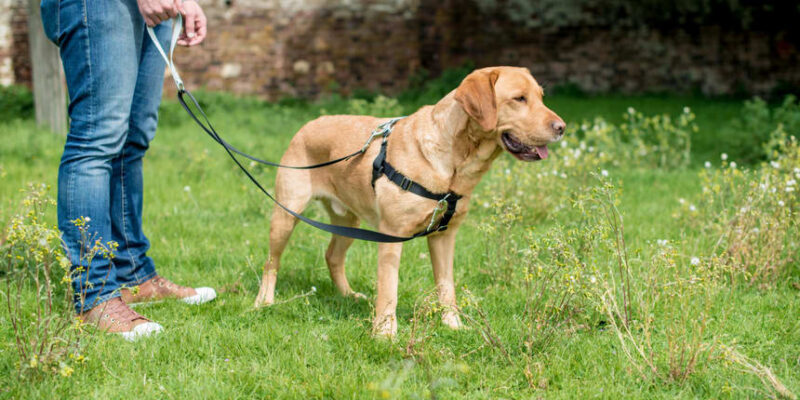Introduction
Dog owners know the struggle of taking their furry friends for a walk. The constant pulling and tugging on the leash can make a simple stroll feel like a battle of wills. This is where harness training comes in.
In this article, we’ll explore the numerous benefits of dog harness training for dogs, and how it can transform your walks into enjoyable, stress-free experiences.
- Reduced Strain on Neck and Throat
Particularly if the dog has a tendency to tug on the leash, traditional collars can exert tremendous strain on the dog’s neck and throat. There may be discomfort and even injury as a result of this. Contrarily, harnesses equally distribute the pressure over the chest and shoulders, lowering the possibility of strain or damage.
- Improved Control and Safety
Harnesses provide pet owners with better control over their dogs. By attaching the leash at the back or front of the dog harness, you gain more influence over their movements. This added control is particularly beneficial in high-traffic areas or when encountering unfamiliar dogs.
- Minimized Risk of Escaping
Dogs, especially those with a strong prey drive, can slip out of collars. This is not only dangerous for the dog but also stressful for the owner. Harnesses offer a more secure fit, making it nearly impossible for even the most determined Houdini hounds to escape.
- Comfortable Fit for All Breeds
Harnesses are available in a wide range of sizes and styles, ensuring a comfortable fit for dogs of all breeds and sizes. From small Chihuahuas to large Great Danes, there’s a dog harness designed to suit every furry friend.
- Ideal for Training Purposes
Dog Harness training aids in teaching dogs proper leash manners. It discourages pulling and jumping, promoting more polite behavior during walks. This makes it an invaluable tool for both puppies and older dogs in need of a refresher in leash etiquette.
- Prevents Health Issues
Constant pressure on a dog’s neck from a collar can lead to various health issues, including tracheal damage and eye problems. Harnesses alleviate this risk, making them a healthier option for long-term use.
- Great for Brachycephalic Breeds
Breeds with short noses, such as Bulldogs and Pugs, are prone to respiratory issues. For them, collars can exacerbate these problems. Harnesses, by avoiding pressure on the neck, are a more suitable choice for these brachycephalic breeds.
- Enhances Bonding Between Owner and Dog
The act of harnessing your dog can become a positive bonding experience. It establishes trust and communication between you and your furry companion, making walks an enjoyable activity for both parties.
- Versatility for Various Activities
Harnesses aren’t just for walks. They can be used for a variety of activities including hiking, running, and even agility training. Their secure fit ensures your dog can participate in these activities safely and comfortably.
- Stylish and Functional Designs
Modern harnesses come in a plethora of styles and designs, allowing owners to choose options that not only serve a functional purpose but also reflect their personal taste.
- Minimizes Pulling-Related Injuries
Dogs that pull vigorously on a leash with a collar are at risk of injuries to their neck, throat, and trachea. Harnesses prevent these potential injuries, offering a safer alternative.
- Encourages Positive Associations
Putting on a dog harness can become a positive ritual for your dog. With time, they’ll associate it with enjoyable experiences like walks and outdoor adventures, making them even more excited to gear up and head out.
Conclusion
Incorporate and buy dog harness online or offline into your dog’s routine can greatly enhance the quality of your walks and contribute to their overall well-being. From improved safety to better control, the benefits are numerous. So, invest in a high-quality dog harness and start enjoying stress-free, enjoyable walks with your furry friend today. Remember, a well-trained dog is a happy dog, and a happy dog leads to a happier owner.












Comments